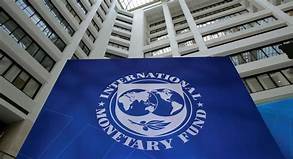Looks like Kenya is in for a tough run in the coming financial year or maybe even for a longer span. Kenya needs to borrow to meet its budgetary needs. The International Monetary Fund (IMF) is willing to lend but wants structural and governance reforms for Kenyan state-owned enterprises. How did Kenya get into this tough spot? Officials blame it on Covid-19 and the global slowed-down economy that resulted from the pandemic. Granted, economies took a hit from the pandemic but despite that fact in mind, reason still begs to understand what of the IMF loans that were issued specifically to help countries muzzle down the negative effects of the pandemic?
Notably, at the onset of the pandemic in March 2020, Kenya received a whopping $739 million loan from the IMF. The money was specifically meant to help cushion the Kenyan economy from the adverse effects of the Covid-19 pandemic. Now the IMF says Kenya is being lax.
While it has not used that blunt description, it has however pointed at loopholes in Kenya’s spending, particularly in its public organs and demanded tougher measures be taken i.e. Kenya needs to tighten its belt, so to speak. While the specific measures have not been articulated (or at least not revealed to the public) the IMF is emphatic; it wants stringent conditions imposed to ‘help stabilise the economy.’ Since the Kenyan government does not have another less ‘tougher’ borrowing option, Kenya’s Treasury Permanent Secretary Dr. Muia told local media that the country will have to ‘implement tough conditions imposed by international lending institutions.’ That said the IMF issued Kenya with a statement outlining areas for reform, reduce spending, increase revenue, and implement fiscal policies.
In its statement the IMF said it wants ‘tax, governance and monetary policy reforms’ to be implemented if Kenya is to get the loan it seeks. Kenya has acquiesced, saying the reforms will be implemented. What IMF-ordered reforms mean for Kenyans In what Kenyan media is describing as ‘painful prescriptions’ the IMF-ordered reforms are feared to mean job losses across most government sectors on the one hand and increased taxes on the other.
Let’s put all this into perspective, or shall we say, let’s break it down to the common man’s language. After all, it is the common Kenyan who will be most affected. While job losses mean a loss in household incomes, which in turn means families will have less money at their disposal to meet their everyday needs, increased taxes mean that the cost of living will go up. So it is double trouble for the common Kenyan. When it comes to tax increases, it does not matter where they are applied; the increase will, at the end of the day, be shouldered by the common Kenyan every time they go to the shop or anytime they fuel their cars.
https://theexchange.africa/countries/imf-says-budget-cuts-best-pill-for-kenyas-debt-health/
Even though economists in Kenya are wary that these loan conditions will mirror the IMF’s Structural Adjustment Programmes of the 1980s that meant job losses and higher taxes, Kenyan authorities would have the public believe that the reforms do not necessarily mean civil servants will lose their jobs. “The outcome of these reforms in terms of staffing/jobs is not a predetermined variable,” Dr. Muia told media.
Economists, however, do not share the government’s optimism at all. An Economics lecturer at the University of Nairobi Dr. Samwel Nyandemo warns that, “…the call for parastatal reforms definitely shall see a situation where some shall be consolidated and others rendered irrelevant.” Key words here are consolidated and rendered irrelevant. How these government bodies that employee thousands of Kenyans will be merged (consolidated) and others ‘closed’ (rendered irrelevant) and yet the thousands of jobs go unscathed, remains to be seen.
While the government has not been outright as to what will be the implication of the IMF proposed tax reforms on the commoners, the economist was clear; “Fiscal consolidation will definitely attract increased taxes and a corresponding increase in the cost of living.” An eye on IMF: Oxfam foresaw these IMF strict measures on budgetary support post Covid-19 and warned that 76 of 91 IMF loans that were negotiated with at least 81 countries, Kenya included, want stringent fiscal measures taken that could, among other things, mean “deep cuts to public healthcare systems and pension schemes, wage freezes and cuts for public sector workers such as doctors, nurses and teachers, and unemployment benefits, like sick pay.”
If that does not sound like a warning for impending social crumble and subsequent civil strife, I don’t know what does. Let’s try unravelling this other warning. “The IMF has sounded the alarm about a massive spike in inequality in the wake of the pandemic. Yet it is steering countries to pay for pandemic spending by making austerity cuts that will fuel poverty and inequality,” said Chema Vera, Oxfam International’s Interim Executive Director. [Emphasis added: austerity cuts that will fuel poverty and inequality]. “These measures could leave millions of people without access to healthcare or income support while they search for work, and could thwart any hope of sustainable recovery. In taking this approach, the IMF is doing an injustice to its own research. Its head needs to start speaking to its hands.” Well, while the IMF’s head may not be communicating with its hands, it is certainly communicating to Kenyans and it is saying, ‘buckle up, you are in for a tough 2021.’
https://theexchange.africa/countries/imf-says-budget-cuts-best-pill-for-kenyas-debt-health/
